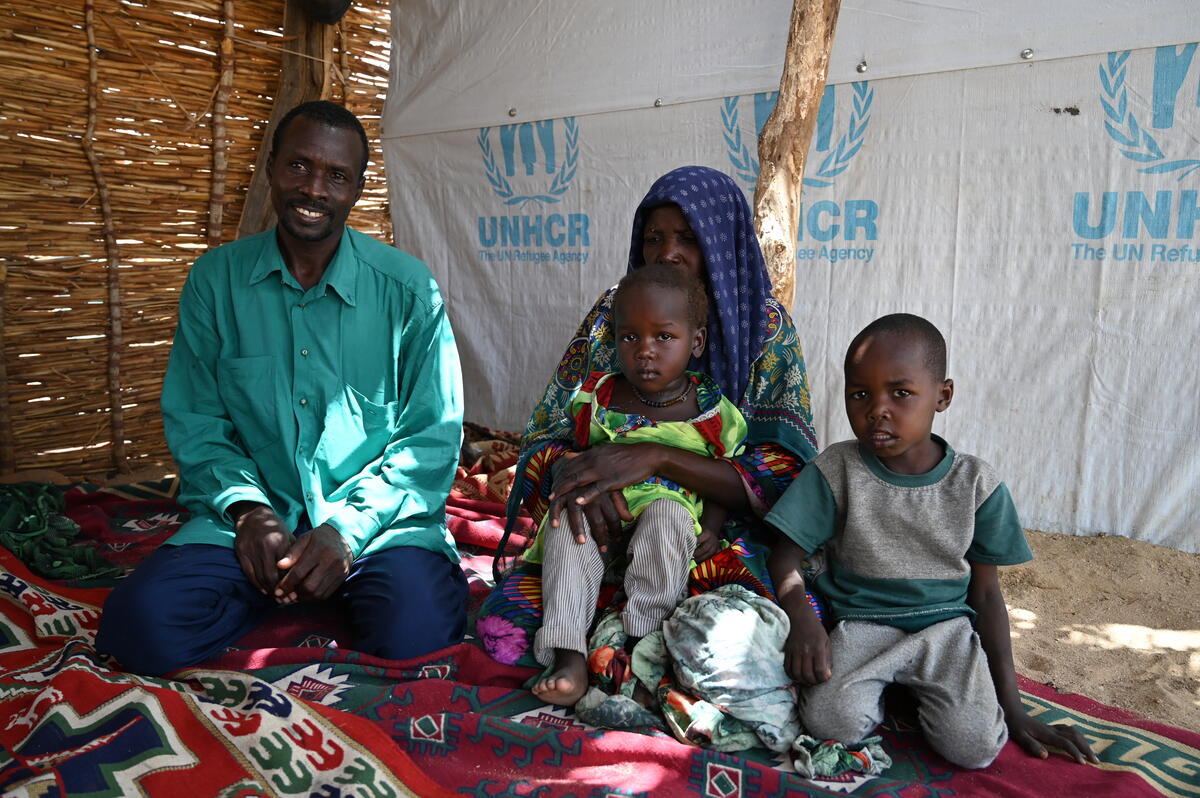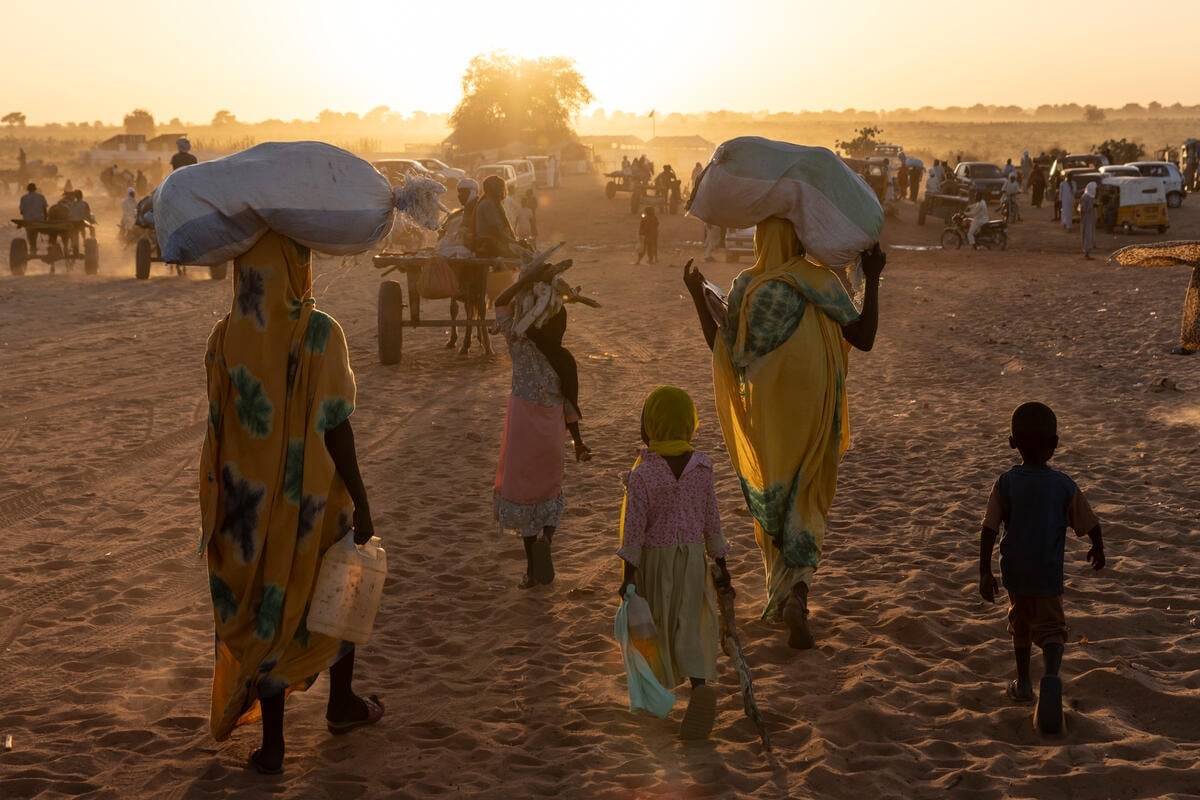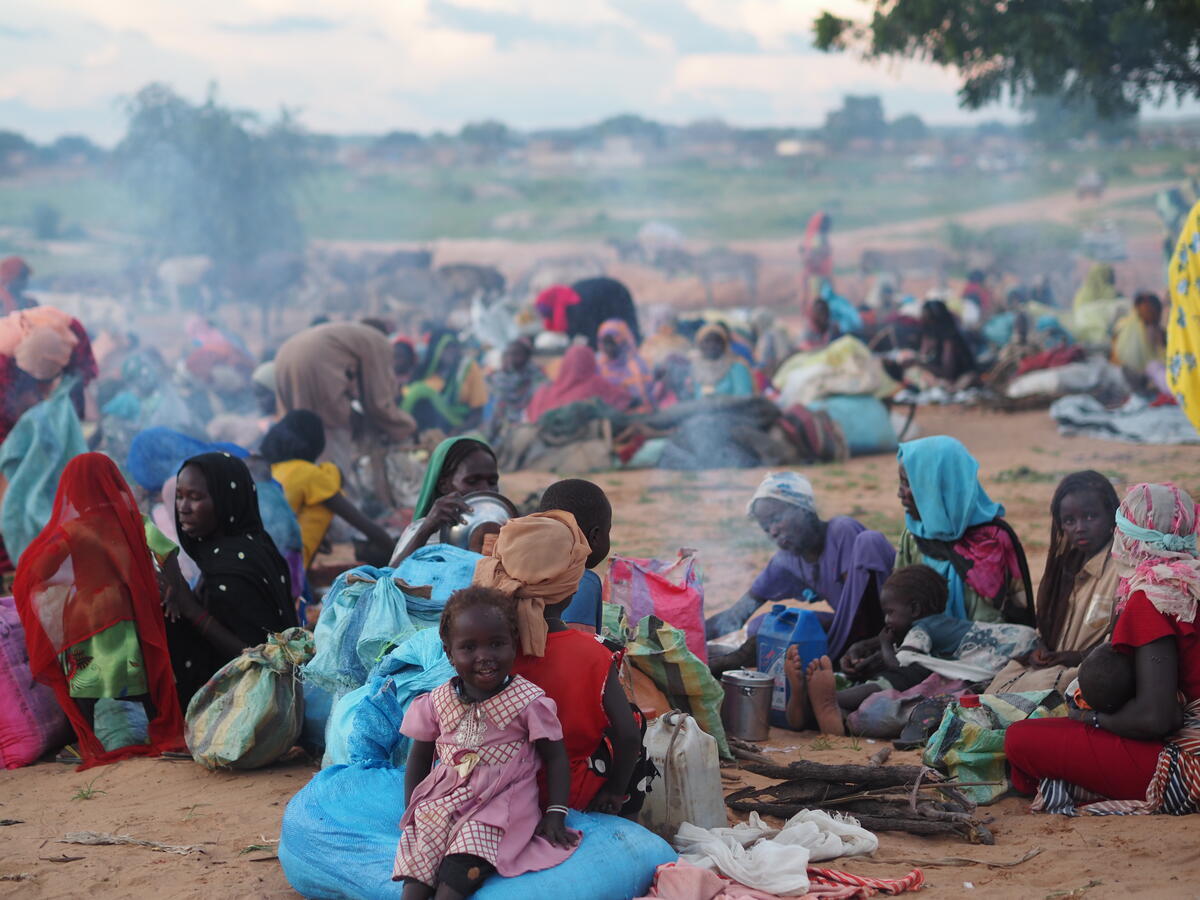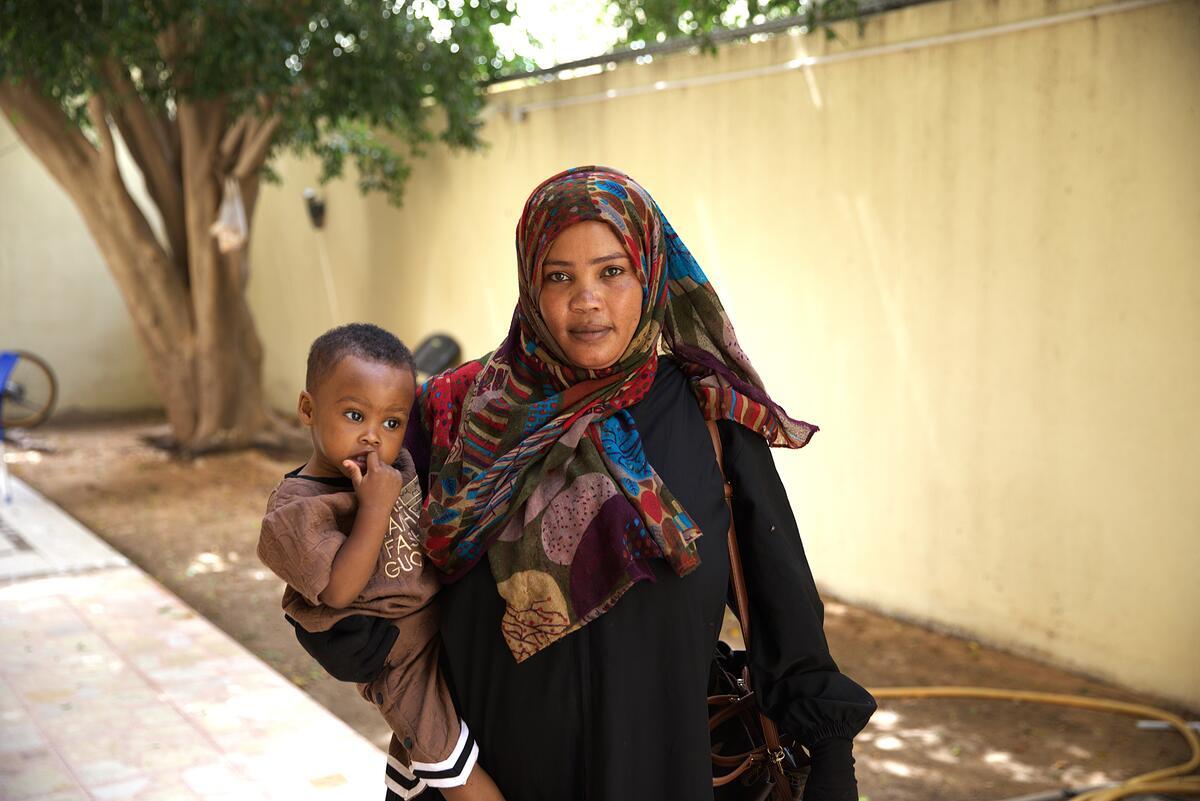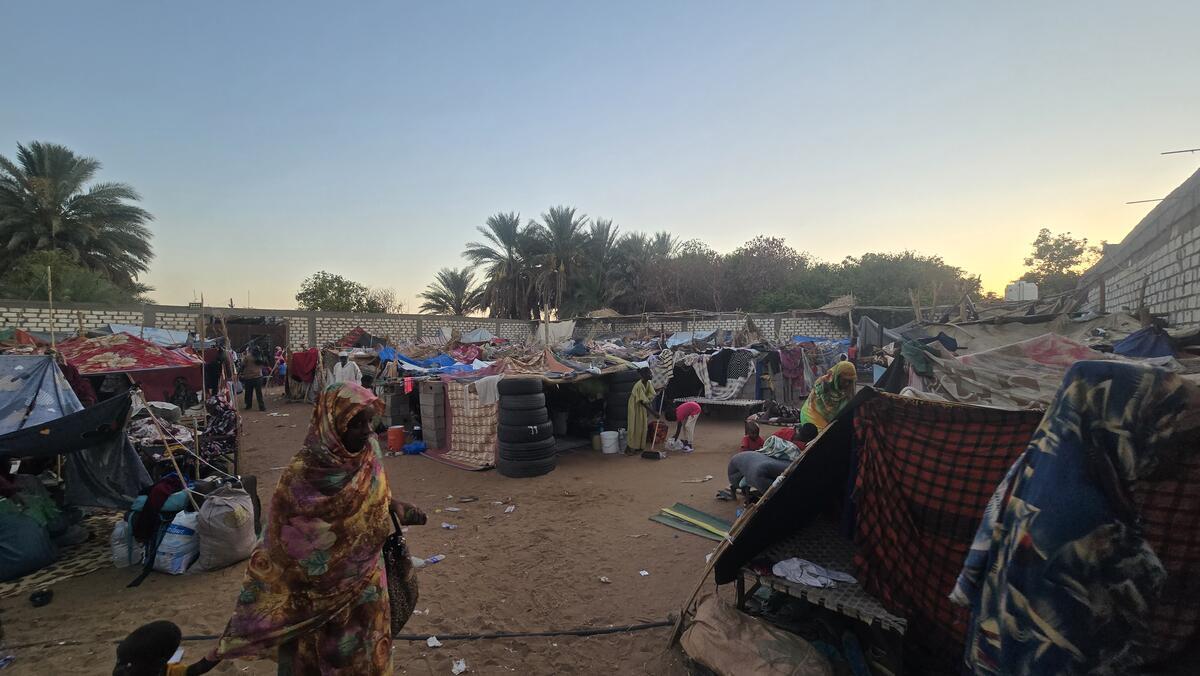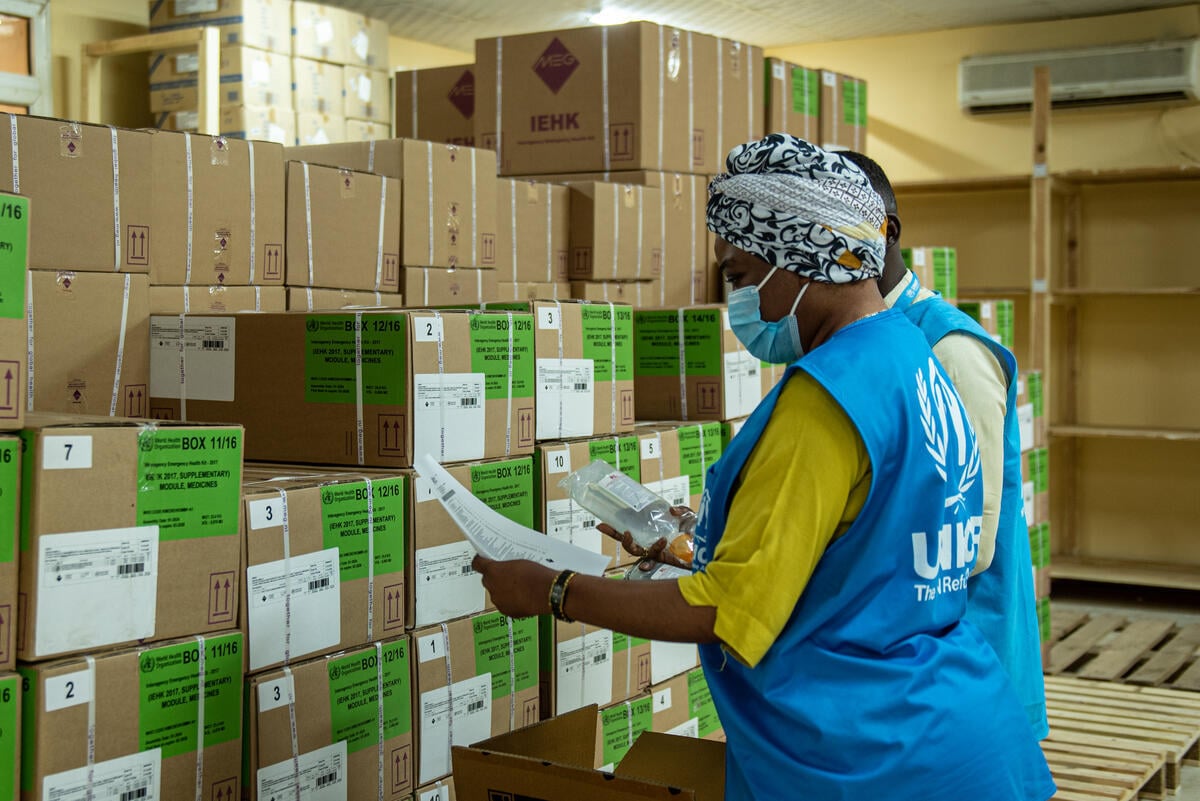Eritrean refugees told to register before end of year in effort to speed returns
Eritrean refugees told to register before end of year in effort to speed returns

Eritrean refugees returning home from the Sudan last year.
ASMARA, Eritrea, March 27 (UNHCR) - In an effort to speed the rate of returns, Eritrean refugees who wish to go home from the Sudan have until the end of the year to register with the refugee agency under a tripartite agreement signed by the governments of Sudan and Eritrea and UNHCR.
The agreement, signed Tuesday in Asmara, set the cut-off date for registration of Eritrean returnees from the Sudan for December 2002 and agreed to intensify information campaigns in the 23 refugee camps in eastern Sudan.
In May 2001, UNHCR began a massive repatriation operation to aid the return to Eritrea of hundreds of thousands of refugees from neighbouring Sudan. Since then, more than 40,000 Eritrean refugees have returned home, some after more than 30 years in exile.
Some 60,000 Eritrean refugees are expected to return home this year under the revamped operation. An additional 62,000 would be assisted to return home in 2003.
As many as 500,000 civilians fled to the Sudan during a bitter 30-year war following Ethiopia's annexation of Eritrea in 1962. After Eritrea peacefully seceded from Ethiopia in 1993 and political conditions improved in the region, UNHCR began to register the refugees as a first step to their eventual return to their homeland.
The Asmara meeting recommended that UNHCR, in consultation with the governments of Eritrea and Sudan, should give the refugees more information about the situation in their areas of origin, mainly in the Gash Barka region of western Eritrea. Officials hope such information will convince more refugees to return home.
U.N. agencies attending the meeting, among them the World Food Programme, UNICEF and the U.N. Development Programme, agreed to support the process of reintegrating refugees and other displaced Eritreans. The World Food Programme, for example, will provide food support to the returnees for twelve months.
On Wednesday, more than 570 refugees from camps in eastern Sudan boarded some 65 trucks and other passenger vehicles for their return journey home. Wednesday's convoy was the 73rd since the start of the operation nearly 10 months ago, and brings the total number of returnees to 42,498. Registration for repatriation is being stepped up in most camps.
An estimated 315,000 Eritrean refugees remain in neighbouring Sudan. Nearly half of them reside in camps in the western part of the country and are assisted by the U.N. refugee agency, while the remainder settled spontaneously in urban centres.
Once the repatriation is completed at the end of next year, it will bring one of the longest chapters in the history of the refugee programme to a close.


